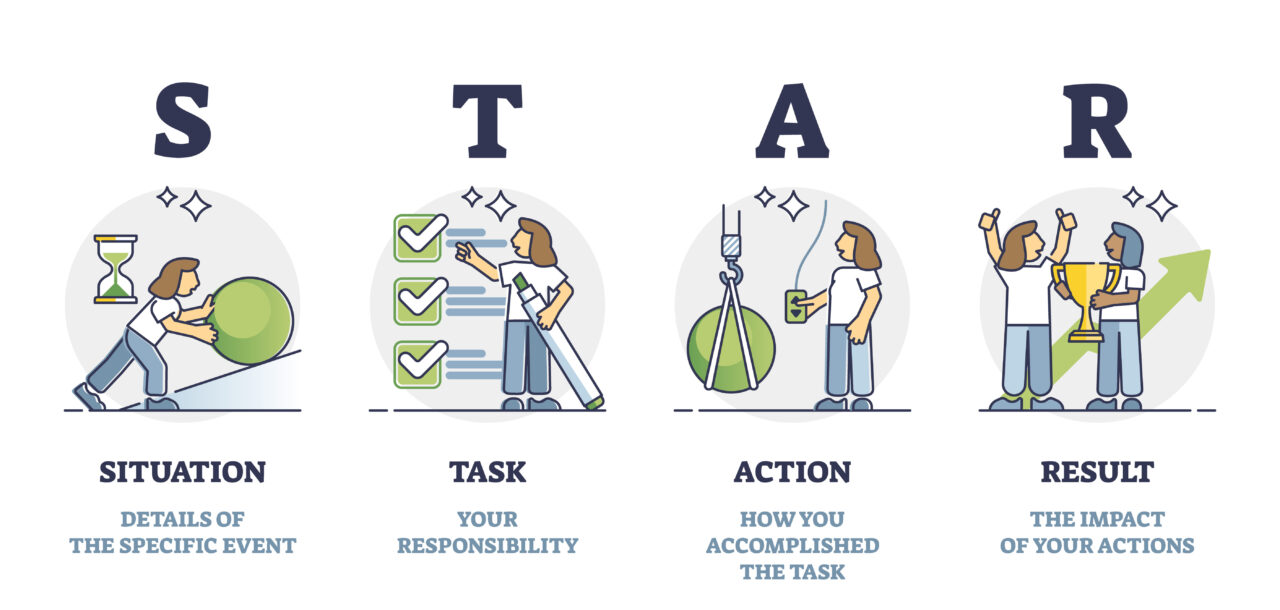Ace Your Japanese Interview: 5 Etiquette Rules and Common Questions Explained

“I’m nervous about my upcoming job interview in Japan. What are the essential etiquette rules I need to know?”, “How can I prepare for common interview questions without making cultural mistakes?” You’re not alone in feeling this way.
The key to acing a Japanese interview lies in mastering five crucial etiquette rules and preparing for common questions that reflect Japanese business culture.
In this article, we’ll guide you through the essential Japanese interview etiquette, explain common job interview questions in Japan, and provide insights into business manners that will set you apart from other candidates. Whether you’re a seasoned professional or a newcomer to the Japanese job market, these tips will help you navigate your interview with confidence and cultural sensitivity.
Understanding Japanese Interview Etiquette
The Importance of Etiquette in Japanese Business Culture
In Japan, etiquette remains an important aspect of business culture, although it has evolved with the times. Japanese business etiquette still reflects traditional values such as respect and harmony, but many companies now embrace a more globalized approach. For job seekers, especially those from abroad, being aware of these etiquette norms can be beneficial, as it demonstrates cultural sensitivity and adaptability.
Understanding Japanese interview etiquette can give you an advantage in the job market. It shows potential employers that you’ve taken an interest in local customs and are prepared to navigate the Japanese work environment.
Cultural Differences: Western vs. Japanese Interview Expectations
While there are still some differences between Western and Japanese interviews, the gap is narrowing in many progressive companies. In Japan, you might notice:
- Group dynamics: A focus on how well you can work within a team, though individual contributions are also valued.
- Company fit: Interest in your long-term goals and how they align with the company’s vision.
- Balanced self-presentation: The ability to discuss your achievements confidently while maintaining humility.
- Attention to detail: Appreciation for candidates who show awareness of social and professional norms.
Understanding these nuances can help you navigate the interview process more smoothly.
Japanese Interview Manners: An Overview
Japanese interview manners still include some traditional elements, but there’s increasing flexibility, especially in multinational or forward-thinking Japanese companies. Key aspects to consider include:
- Punctuality: Being on time is important, as it shows respect for the interviewer’s schedule.
- Appearance: Professional attire is expected, but the definition of this can vary by company and industry.
- Greetings: While bowing and exchanging business cards (meishi) are still common, many companies also accept handshakes and Western-style greetings.
- Non-verbal communication: Being mindful of your body language and facial expressions is helpful in any cultural context.
- Language: Using polite Japanese is appreciated if you’re able, but many companies conduct interviews in English or are understanding of language learners.
By being aware of these customs while remaining true to yourself, you can navigate Japanese interviews with confidence.
5 Essential Etiquette Rules for Japanese Job Interviews
1. Proper Greetings and Bowing Techniques
In Japanese business culture, the way you greet your interviewer sets the tone for the entire meeting. While traditional bowing is still common, many companies, especially those with international ties, are comfortable with handshakes or a combination of both.
If you choose to bow, a 15-degree bow is generally appropriate for business situations. However, don’t stress too much about perfecting your bow; sincerity is more important than technique. If you’re unsure, it’s perfectly acceptable to follow your interviewer’s lead.
When introducing yourself, a simple “Hajimemashite” (Nice to meet you) followed by your name is a good start. Many interviewers will appreciate your effort to use Japanese, even if you then continue in English.
2. Punctuality and Arrival Timing
Punctuality remains highly valued in Japanese business culture. It’s advisable to arrive at the interview location about 10-15 minutes early. This buffer allows time for finding the correct room and composing yourself before the interview.
If you’re running late due to unavoidable circumstances, it’s crucial to contact the company as soon as possible to explain the situation and apologize. Most Japanese companies will appreciate your communication and honesty.
3. Appropriate Dress Code and Appearance
The standard dress code for Japanese job interviews is still relatively conservative, but it’s becoming more varied depending on the company and industry. For traditional companies, a dark suit with a white shirt is a safe choice for both men and women. However, many modern companies, especially in creative or tech fields, have more relaxed dress codes.
It’s always a good idea to research the company’s culture beforehand. If you’re unsure, err on the side of conservative dress, but don’t feel pressured to purchase a new wardrobe. Neat, clean, and professional appearance is more important than adhering to strict dress codes.
4. Exchanging Business Cards (Meishi)
The exchange of business cards, or meishi, remains an important ritual in Japanese business culture. If you have business cards, bring them to the interview. When exchanging cards:
- Present your card with both hands, with the Japanese side (if you have one) facing up towards the recipient.
- Receive cards with both hands and take a moment to read them.
- Place received cards on the table in front of you during the meeting, if appropriate.
Don’t worry if you don’t have business cards or if you make a small mistake in the exchange. Many companies understand that foreign candidates might not be familiar with this custom, and they appreciate the effort more than perfect execution.
5. Non-Verbal Communication and Body Language
Non-verbal cues play a significant role in Japanese communication. While expectations are generally becoming more relaxed, especially for foreign candidates, being mindful of your body language can help create a positive impression:
- Eye contact: Maintaining some eye contact shows confidence and engagement, but constant direct eye contact might be perceived as too intense. It’s okay to occasionally look away or at your notes.
- Posture: Sit up straight to show attentiveness, but don’t be overly rigid.
- Facial expressions: A pleasant, interested expression is appropriate. Smiling is welcome, especially when introduced or when the conversation calls for it.
- Hand gestures: While gesturing can help emphasize points, overly large or frequent gestures might be distracting. Moderate your movements to match the interviewer’s style.
By being aware of these etiquette guidelines while staying true to yourself, you can navigate Japanese job interviews with confidence. Modern Japanese workplaces value candidates who can balance cultural sensitivity with their unique perspectives and strengths.

Common Job Interview Questions in Japan and How to Answer Them
1. Self-Introduction (Jiko-Shokai)
The self-introduction, or jiko-shokai, is often the first question in a Japanese interview. While traditionally this was a formal, chronological presentation of your background, many modern Japanese companies now appreciate a more personalized approach.
How to Introduce Yourself in a Japanese Interview
Start with a brief greeting and your name. Then, provide a concise overview of your professional background, highlighting experiences relevant to the position. You might say something like:
“Hello, my name is [Your Name]. I’ve been working in [Your Field] for [X] years, with a focus on [Your Specialization]. I’m particularly interested in [Aspect of the Job or Company] and believe my experience in [Relevant Skill] could contribute to your team’s goals.”
Remember to speak clearly and at a moderate pace, especially if the interview is in Japanese. Many interviewers will appreciate your effort to use Japanese, even if you then switch to English for more complex discussions.
2. Questions About Your Background and Experience
Japanese interviewers are interested in understanding your professional journey and how it has prepared you for the role. Common questions include:
- “Can you walk us through your resume?”
- “What were your main responsibilities in your previous role?”
- “What achievements are you most proud of?”
When answering, focus on experiences most relevant to the position you’re applying for. While Japanese culture traditionally values modesty, it’s okay to highlight your achievements. The key is to balance confidence with humility. For example:
“In my previous role, I led a team that increased sales by 20%. This was a collaborative effort, and I’m proud of how our team worked together to achieve this goal.”
3. Questions About Your Interest in the Company
Why Do You Want to Work in Japan? Best Answers
This question is particularly common for foreign applicants. Your answer should demonstrate genuine interest in Japanese culture and business practices, as well as specific reasons for choosing this company. A strong response might include:
- Your interest in the company’s products, services, or mission
- Admiration for Japanese business practices or work culture
- How working in Japan aligns with your career goals
- Any previous experiences with Japanese culture or language
For example:
“I’ve always been impressed by Japan’s emphasis on quality and continuous improvement. Your company’s commitment to innovation in [specific field] aligns perfectly with my professional interests. Additionally, my experience studying Japanese and my previous work with Japanese clients has made me eager to contribute to a Japanese work environment.”
4. Behavioral and Situational Questions
Many Japanese companies are adopting Western-style behavioral interview questions. These might include:
- “Tell us about a time when you faced a challenge at work. How did you overcome it?”
- “How do you handle disagreements with colleagues?”
- “Describe a situation where you had to adapt to a new work environment.”
When answering these questions, use the STAR method (Situation, Task, Action, Result) to structure your responses. Be honest and reflective, showcasing your problem-solving skills and ability to work in a team.

5. Addressing Weaknesses and Future Goals
Questions about weaknesses and future aspirations are common in Japanese interviews. When discussing weaknesses, be honest but strategic. Mention a genuine area for improvement, but focus on how you’re actively working to address it.
For future goals, align your aspirations with the company’s growth and your potential role within it. Japanese companies often value long-term commitment, so expressing interest in growing with the company can be beneficial.
For example:
“In the next five years, I hope to deepen my expertise in [Relevant Field], take on more leadership responsibilities, and contribute to the company’s expansion into [Relevant Market or Technology].”
Throughout the interview, maintain a balance between confidence in your abilities and respect for the company and interviewers. Be prepared to discuss your experiences and goals in detail, but also show interest in learning about the company and the role. This balanced approach will help you navigate Japanese job interviews successfully, regardless of the company’s level of traditionalism or modernity.
Japanese Interview Practice and Preparation
Researching Common Questions in Japanese
Preparing for common questions in Japanese interviews can significantly boost your confidence and performance. While many questions are similar to those in Western interviews, the way you frame your answers may need to be adjusted for a Japanese context.
Some common questions to prepare for include:
- “Why do you want to work for our company?“
- “How do you handle stress or pressure?“
- “Where do you see yourself in five years?“
When preparing your answers, focus on aligning your experiences and goals with the company’s values and needs. Japanese companies often appreciate candidates who show a genuine interest in the company and a willingness to commit long-term.
Japanese Interview Tips for Non-Native Speakers
If you’re not fluent in Japanese, don’t let this deter you. Many Japanese companies, especially those with international operations, conduct interviews in English or are understanding of language learners. Here are some tips:
- Be honest about your language level: It’s better to be upfront about your Japanese proficiency than to overstate it.
- Learn key phrases: Even if the interview is in English, knowing basic Japanese greetings and business terms can make a positive impression.
- Practice active listening: If you don’t understand something, it’s okay to politely ask for clarification.
- Use simple, clear language: Avoid complicated idioms or slang that might be difficult to translate.
Remember, many Japanese employers value enthusiasm and willingness to learn as much as current language ability.
Mock Interviews and Role-Playing
Practicing through mock interviews is an excellent way to prepare for a Japanese job interview. If possible, find someone familiar with Japanese business culture to role-play as the interviewer. This can help you:
- Get comfortable with the flow of a Japanese-style interview
- Practice your self-introduction and answers to common questions
- Receive feedback on your body language and tone
During these practice sessions, pay attention to non-verbal cues like bowing, eye contact, and posture. While modern Japanese companies are often more relaxed about these elements, being aware of them can still be beneficial.
Resources for Japanese Interview Questions and Answers
There are numerous resources available to help you prepare for Japanese interviews:
- Online forums and blogs: Many expats share their interview experiences and tips online.
- Language exchange partners: Practicing with a Japanese native speaker can provide valuable insights.
- Professional networking events: Attend events where you can meet people working in your industry in Japan.
- Career counseling services: Some organizations offer specialized counseling for job seekers in Japan.
- Company websites and annual reports: These can provide valuable information about a company’s culture and values.
While Japanese interview questions and answers PDFs are available online, be cautious about relying too heavily on scripted answers. Authenticity is key, and interviewers will appreciate genuine responses that reflect your true experiences and personality.
By thoroughly preparing and remaining flexible, you’ll be well-equipped to navigate Japanese job interviews with confidence, whether they follow a more traditional or modern format.
Business Manners in Japan: Key Insights for Interview Success
Hierarchy and Respect in Japanese Workplaces
Understanding the concept of hierarchy in Japanese business culture can give you an edge in your interview. While many modern Japanese companies are moving towards flatter organizational structures, respect for seniority and position still plays a significant role.
During your interview, show respect to all individuals present, regardless of their position. Address people by their last name followed by “-san” unless instructed otherwise. If you’re unsure about someone’s role, it’s better to err on the side of formality.
However, don’t be surprised if you encounter a more casual atmosphere in some companies, especially startups or international firms. The key is to mirror the level of formality set by your interviewers while maintaining a respectful demeanor.
The Concept of Harmony (Wa) in Japanese Business
“Wa” or harmony is a fundamental principle in Japanese society and business. In the context of an interview, this translates to demonstrating your ability to work well in a team and contribute to a positive work environment.
When discussing your experiences, emphasize instances where you successfully collaborated with others or helped maintain a harmonious workplace.
Gift-Giving Etiquette in Professional Settings
While gift-giving is an important part of Japanese culture, it’s generally not expected or appropriate to bring a gift to a job interview. Instead, focus on presenting yourself professionally and bringing any requested documents neatly organized.
If you’re invited for a second interview or offered a position, a small token of appreciation like a thank-you note is often well-received. If you give a small gift after a long professional relationship, remember that the manner of giving is often considered more important than the gift itself.
After-Hours Socializing and Nomikai
“Nomikai” or after-work socializing is a common practice in many Japanese companies. While it’s less likely to come up during an initial job interview, being aware of this aspect of Japanese work culture can be beneficial.
If the topic arises, express openness to participating in such events, as they’re often seen as important for team bonding. However, many modern companies understand that their employees have personal schedules and do not make attendance mandatory.
During your interview, show respect for Japanese business customs while also being prepared to adapt to potentially more modern or globally-oriented environments. Your ability to navigate this balance can be a significant asset in today’s Japanese job market.
Step-by-Step Guide to Acing Your Japanese Interview
Pre-Interview Preparation Checklist
- Research the company: Understand their business, culture, and recent developments.
- Practice your self-introduction: Prepare a concise, relevant jiko-shokai in Japanese if possible.
- Review common interview questions: Prepare answers that highlight your skills and experiences.
- Prepare questions for the interviewer: This shows your interest and engagement.
- Organize your documents: Have copies of your resume, references, and any required paperwork.
- Plan your outfit: Choose professional attire that aligns with the company’s culture.
- Confirm interview details: Double-check the time, location, and name of your interviewer(s).
Day-of Interview Tips
- Arrive early: Aim to be at least 10-15 minutes early to allow for any unexpected delays.
- Bring essentials: Carry a notepad, pen, and copies of your documents.
- Turn off your phone: Or put it on silent mode to avoid distractions.
- Greet properly: Use appropriate greetings and follow the interviewer’s lead on bowing or handshakes.
- Show enthusiasm: Demonstrate genuine interest in the position and company.
- Listen actively: Pay attention to questions and ask for clarification if needed.
- Be mindful of non-verbal cues: Maintain good posture and appropriate eye contact.
Post-Interview Follow-up Etiquette
- Send a thank-you email: Express your appreciation for the interviewer’s time within 24-48 hours.
- Reiterate your interest: Briefly mention your enthusiasm for the position.
- Be patient: Japanese hiring processes can sometimes be longer than in other countries.
- Follow up appropriately: If you haven’t heard back after the stated time frame, a polite inquiry is acceptable.
Japanese Interview Examples and Scenarios

Entry-Level Position Interview Example
Scenario: A recent graduate applying for a marketing position at a mid-sized Japanese tech company.
Interviewer: “Why are you interested in working for our company?”
Strong Answer: “I’ve been following your company’s innovative approach to AI-driven marketing solutions. Your recent project on personalized customer experiences aligns perfectly with my studies in digital marketing. I’m excited about the opportunity to contribute to a team that’s at the forefront of combining technology and marketing strategies. Moreover, I admire your company’s commitment to fostering a collaborative work environment, which I believe is crucial for innovation in this field.”
This answer demonstrates research into the company, aligns the candidate’s interests with the company’s goals, and shows enthusiasm for the work culture.
Mid-Career Professional Interview Scenario
Scenario: An experienced software engineer interviewing for a team lead position at a multinational Japanese corporation.
Interviewer: “How do you handle conflicts within a team?”
Strong Answer: “In my previous role, I encountered a situation where team members disagreed on the best approach for a critical project. I organized a meeting where each person could present their ideas. We then collaboratively evaluated the pros and cons of each approach. By fostering open communication and focusing on our shared goal of project success, we were able to reach a consensus that incorporated the strengths of multiple proposals. This experience taught me the importance of active listening and finding solutions that benefit the entire team.”
This response showcases problem-solving skills, leadership abilities, and an understanding of the importance of harmony in a team setting.
Executive-Level Interview Case Study
Scenario: A senior manager interviewing for a director position at a traditional Japanese manufacturing company looking to expand globally.
Interviewer: “How would you balance our traditional values with the need for global expansion?”
Strong Answer: “I believe the key lies in identifying core values that have made the company successful and finding ways to adapt them to new markets. For instance, if craftsmanship and attention to detail are central to the company’s ethos, we could highlight these as unique selling points in global marketing campaigns. Simultaneously, I would advocate for cross-cultural training programs to help our team understand and respect diverse business practices. My experience leading international teams has taught me that successful global expansion requires a delicate balance of respecting tradition while embracing innovation and cultural adaptability.”
This answer demonstrates an understanding of both traditional Japanese business values and the challenges of global expansion, showcasing the candidate’s strategic thinking and cultural awareness.
Conclusion: Key Takeaways for Japanese Interview Success
Navigating a job interview in Japan requires a blend of cultural awareness, professional preparation, and authentic self-presentation. While traditional etiquette still plays a role, many Japanese companies are embracing more diverse and global perspectives.
Here are the key points to remember:
- Research and prepare: Understand the company and practice common interview questions.
- Show respect: Demonstrate awareness of Japanese business etiquette while being true to yourself.
- Highlight relevant skills: Emphasize experiences that align with the company’s needs and culture.
- Be adaptable: Be prepared for both traditional and more modern interview styles.
- Communicate clearly: Whether in Japanese or English, focus on expressing your ideas effectively.
- Show enthusiasm: Demonstrate genuine interest in the position and company.
- Follow up appropriately: Send a thank-you note and be patient with the hiring process.
Remember, your unique background and perspectives can be valuable assets. By balancing respect for Japanese business culture with confidence in your abilities, you can make a strong impression in your Japanese job interview.
FAQs About Japanese Interviews
Do I need to be fluent in Japanese for the interview?
Not necessarily. Many international companies conduct interviews in English. However, basic Japanese phrases can be helpful. Be honest about your language skills and express willingness to learn if required.
How formal should I dress for a Japanese interview?
While traditional companies may expect conservative attire, many modern firms have relaxed dress codes. Research the company culture and err on the side of professional if unsure.
Is it okay to ask questions during the interview?
Yes, asking thoughtful questions shows your interest and engagement. Prepare a few questions about the company and role beforehand.
How do I address my interviewer?
Use last names with “-san” unless instructed otherwise. If unsure, it’s better to be more formal initially.
What if I make a cultural mistake during the interview?
Don’t worry too much. Most interviewers understand that cultural differences exist. If you realize you’ve made a mistake, a simple apology is usually sufficient. Many companies value your skills and potential more than perfect etiquette.
